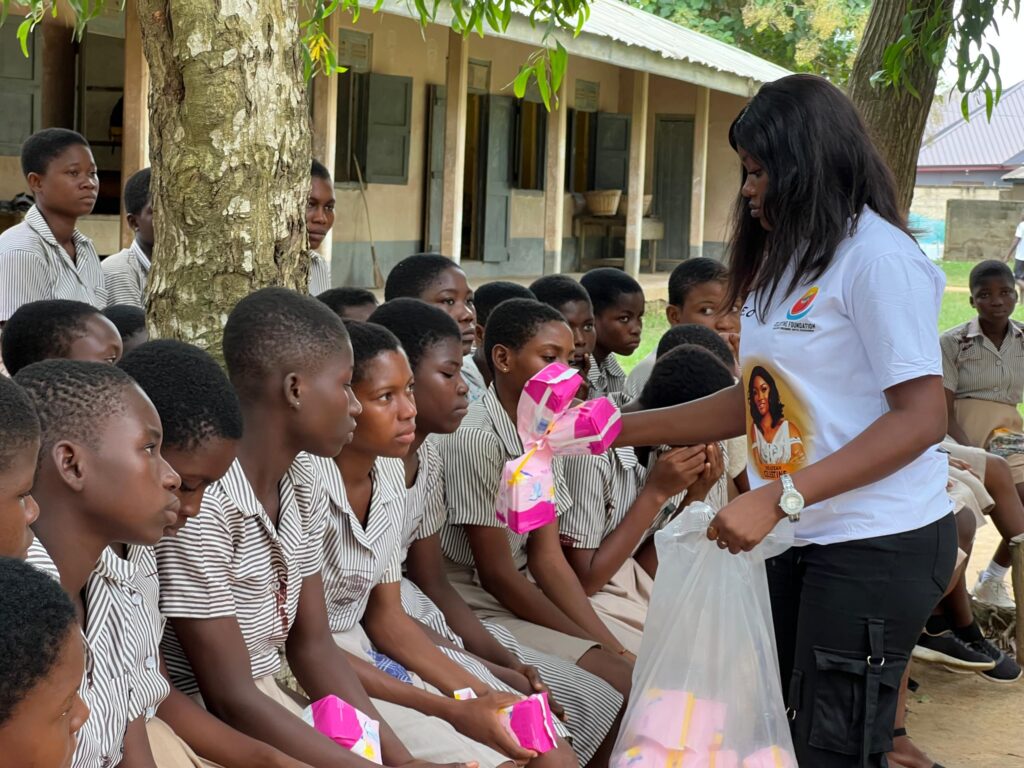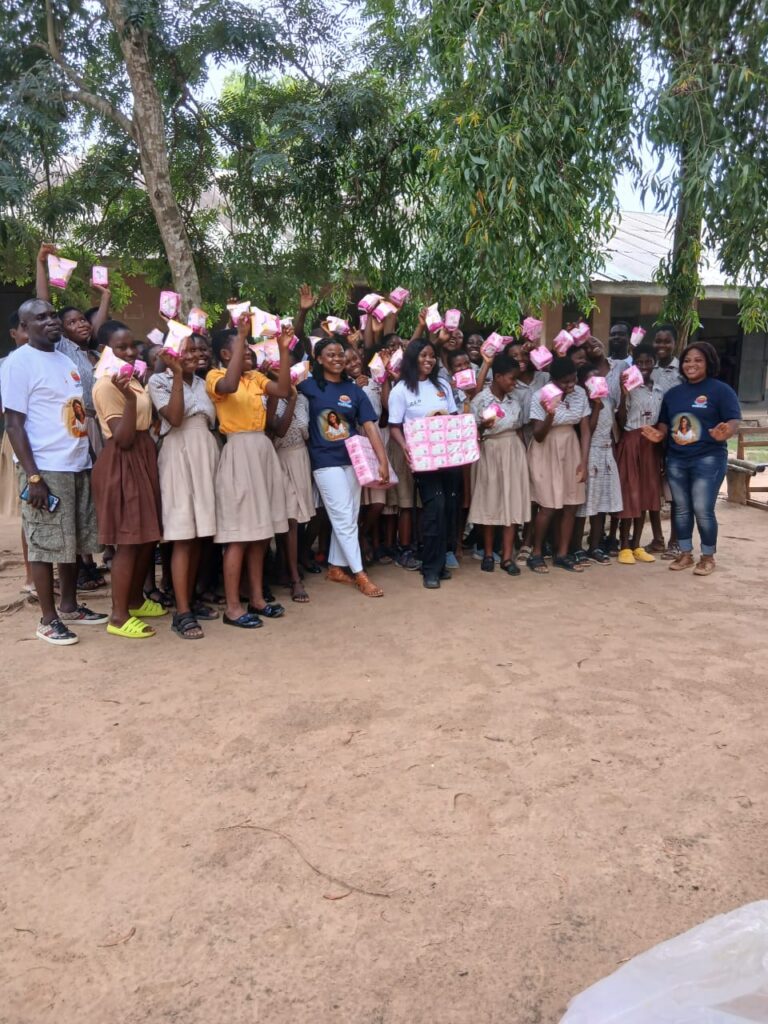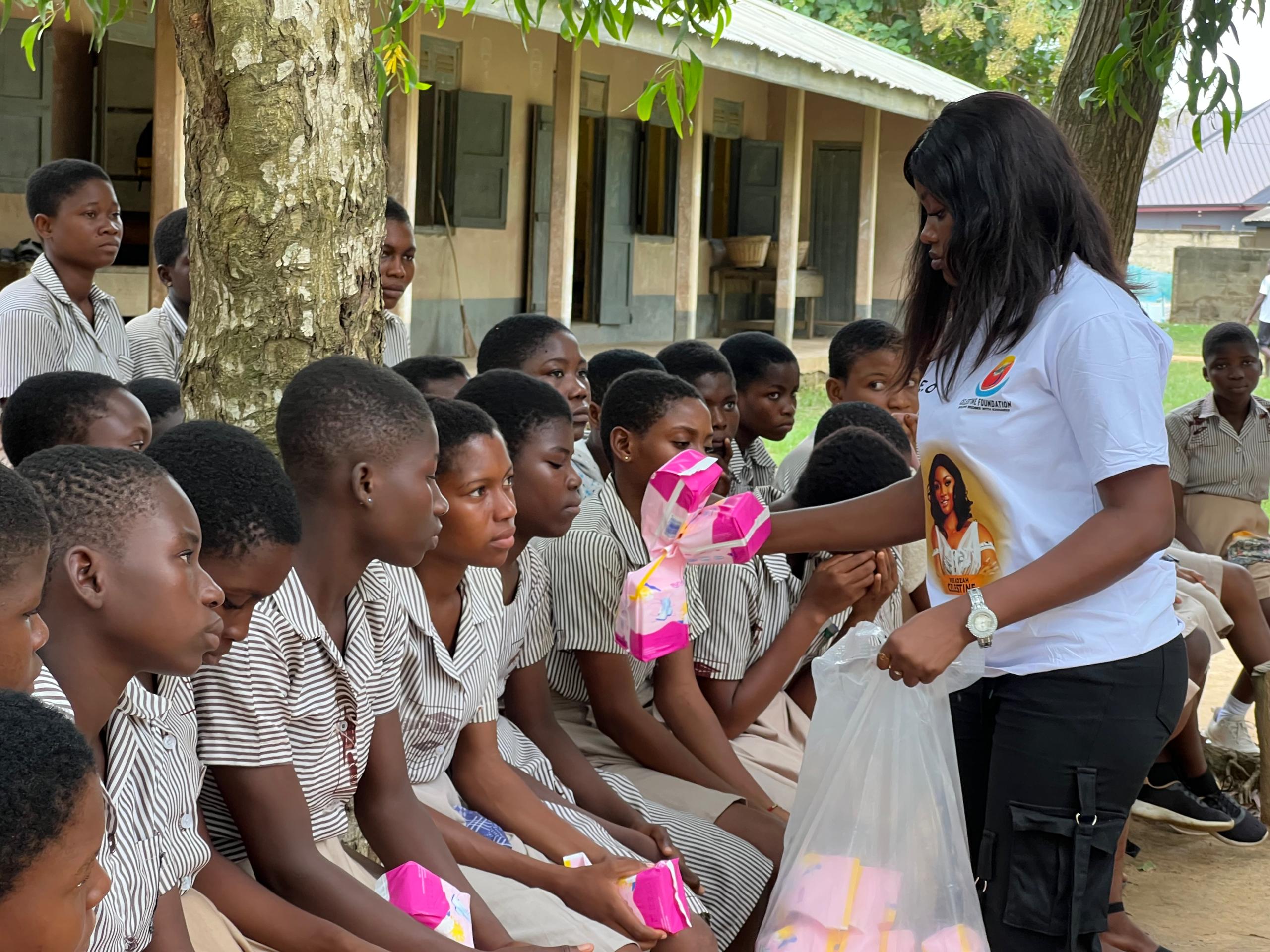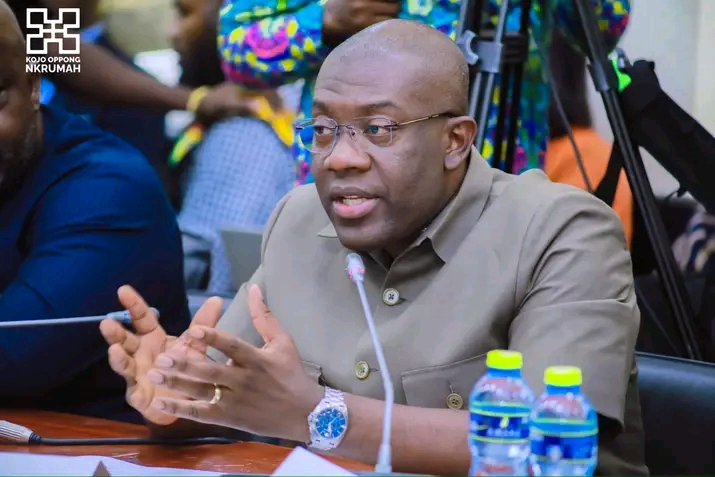Credit: Kekeli K. Blamey
The Celestine Foundation, a nonprofit organisation has extended menstrual health support to 245 female students across three basic schools in the South Tongu Municipality of the Volta Region as part of its ongoing commitment to empowering youth and promoting inclusive education.
The selected schools—Real Vision Academy, Evangelical Christian Academy, and Sokpoe D/A Basic School—benefited from the distribution of sanitary pads and menstrual health awareness sessions.
The intervention follows careful consultation with community stakeholders and assessments of socio-economic indicators affecting school retention and wellbeing among adolescent girls.
The initiative seeks to reduce school absenteeism linked to menstruation, which remains a persistent barrier to girls’ education in many underserved communities.
Ms. Adzah Celestine, Founder and Chief Executive Officer of the Celestine Foundation, noted that menstrual hygiene management should be viewed not only as a health concern but as a critical enabler of girls’ right to education.
“Access to menstrual hygiene products and education is a basic necessity, not a privilege,” Ms. Celestine emphasized. “We must ensure that no girl misses class or drops out of school due to a natural biological process. This initiative reaffirms our collective responsibility to safeguard the dignity and potential of every child.”
She further explained that the Foundation’s work extends beyond product distribution to include menstrual health literacy, community sensitization, and the promotion of safe spaces where girls can speak freely and seek support without fear or shame.
“Our aim is to help normalize conversations around menstruation and provide girls with the tools they need to manage their health confidently,” she added. “Ultimately, we want to foster a culture of empathy, understanding, and respect within schools and communities.”
Mr. Mawunyefia Kofi Agbemenya, Headmaster of Real Vision Academy, expressed heartfelt gratitude on behalf of the beneficiary schools, describing the intervention as timely and deeply impactful.
“This initiative directly addresses a gap that has long affected our female students. Beyond meeting a physical need, it strengthens our efforts to create an enabling learning environment. We sincerely commend the Celestine Foundation for its foresight and compassion.”
The initiative has been well-received by local education authorities, parents, and community leaders, who see it as an important step toward ending period poverty and achieving equal access to education for girls.
In addition to the current intervention, the Foundation has outlined plans to expand its reach to other districts within the Volta Region and eventually to other parts of the country. It is actively seeking partnerships with government institutions, civil society organizations, development agencies, and private sector actors to ensure the long-term sustainability and scalability of its menstrual health programs.
The Foundation’s initiative also aligns with Ghana’s national education and health strategies and supports the Sustainable Development Goals (SDGs), particularly those focused on quality education (Goal 4), gender equality (Goal 5), good health and well-being (Goal 3), and reduced inequalities (Goal 10).








